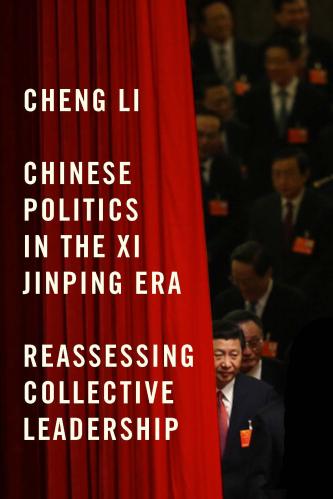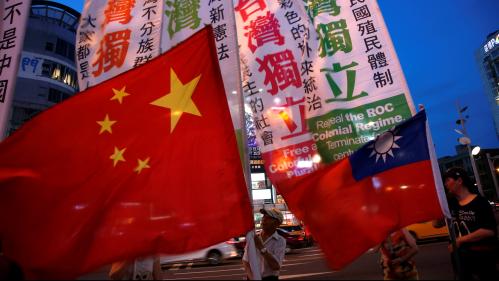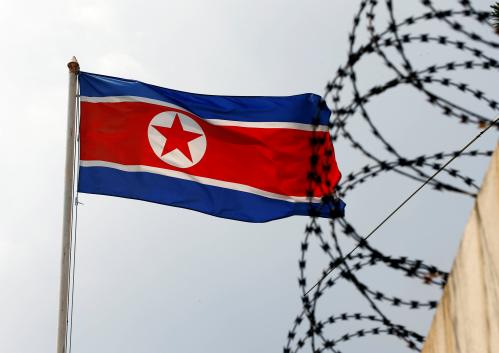Content from the Brookings-Tsinghua Public Policy Center is now archived. Since October 1, 2020, Brookings has maintained a limited partnership with Tsinghua University School of Public Policy and Management that is intended to facilitate jointly organized dialogues, meetings, and/or events.
As in U.S.-China summits before, Presidents Donald Trump and Xi Jinping will discuss a broad range of issues of mutual concern at their upcoming meeting in Palm Beach, Florida. The media will likely focus on contentious topics like regional security and bilateral trade. The imminent need to prevent nuclear proliferation along the Korean Peninsula and to defuse tensions that could induce a trade war between the world’s two largest economies underline the significance of this face-to-face meeting.
The success or failure of this summit, however, may also be judged by whether the two presidents can develop a sensible, respectful, and even trusting personal connection. Like top Chinese leaders before him, Xi Jinping deeply values personal ties with his American counterpart. In June 2013, soon after he became president, Xi visited Sunnylands in Rancho Mirage, California, for his first summit with President Barack Obama. The informal and intimate setting is believed to have encouraged a candid and unscripted dialogue.
For exactly the same reason, Xi will come to Mar-a-Lago—not Washington—later this week. Similarly, Donald Trump also places great importance on building the “kinds of personal relationships” with foreign leaders in more private environments, as during Japanese Prime Minister Shinzo Abe’s visit in February.
Will Trump and Xi be able to foster a personal bond? Might the strong personalities of these two leaders clash? Will the issues they confront be so contentious that any substantial agreement or deliverable becomes virtually impossible, as some analysts in both countries have argued? How can Trump and Xi break the ice, especially after the roller-coaster ride that has been U.S.-China relations over the past few months? These questions are important because the personal connection between these two leaders is likely to have a strategic impact on the world’s most consequential bilateral relationship. The ramifications of the meeting extend far beyond the Asia-Pacific.
[T]he personal connection between these two leaders is likely to have a strategic impact on the world’s most consequential bilateral relationship.
Different strokes or birds of a feather?
Analysts in the United States and China tend to emphasize the differences between Trump and Xi, largely resulting from the contrasting cultural and socio-political environments in which they grew up. Likewise, whereas Xi has risen as an appointed party cadre who has gained solid administrative experience through various areas and levels of government, Donald Trump is an elected politician who, until recently, was a lifelong businessman with no previous government experience. Xi and Trump also seem to differ considerably in their temperaments and styles of public communication.
It is important, however, not to overlook the many striking similarities between Xi and Trump. Both are nationalists with high ambitions for their countries. Just as Xi yearns to fulfill the “Chinese dream” of a rejuvenated Chinese nation (defined as offering a middle-class lifestyle and maintaining a strong military), Trump strives to “make America great again.” Both have appealed to the public for change, especially in terms of fighting corruption. Both have demonstrated a preference for sidelining bureaucracy when making decisions. Both are widely seen as restraining a free press and having tense relations with public intellectuals. Both seem to prioritize domestic affairs and demonstrate keen attention to linkage politics between internal challenges and international competitions. Perhaps, then, Trump and Xi have far more in common than most observers have recognized.
Making it personal
The best way for these two leaders to break the proverbial ice—and nurture a sincerely cooperative mood—could be to share personal experiences related to U.S.-China relations, including their family stories. Even from an outside observer’s perspective, some simple anecdotes could help illustrate these two leaders’ long-standing goodwill towards a healthy and constructive relationship between their respective nations. Personalized narratives would convey a level of mutual respect that contrasts sharply with Trump’s China-bashing rhetoric during the U.S. presidential campaign and Xi’s harsh criticism of U.S. foreign policy via the Chinese propaganda machine.
To a great extent, Xi already has strong personal ties with the United States. He characterized his first trip to America in 1985, during which he studied modern agriculture in Iowa, as “an important event that has had everlasting impact” on his life. Peng Liyuan, China’s first lady and one of the country’s most popular singers, has collaborated extensively with U.S. institutions, including nongovernmental organizations focused on public health, poverty reduction, orphan care, educational exchange, and more. For example, in partnership with the Bill & Melinda Gates Foundation, Peng has been actively involved in tuberculosis and AIDS prevention. Since 2009, she has served as an “Anti-Smoking Ambassador” for the Chinese Association on Tobacco Control, along with Yao Ming and other Chinese celebrities. Peng has been instrumental in establishing the Tianjin Juilliard School, which will open next year. This will be Juilliard’s first campus outside of New York. When Xi was still the heir-apparent to China’s top leadership post, his daughter enrolled at Harvard University, eventually graduating with a bachelor’s degree in psychology.
Some of Xi’s personal experiences in America have carried political risks at home, where rivals could use them as political ammunition. In 2006, when Xi was provincial party secretary of Zhejiang, he made the extraordinarily bold decision to allow the ashes of John Leighton Stuart—the last U.S. ambassador to China before the 1949 Communist Revolution—to be buried in his native city of Hangzhou, Zhejiang Province. Born into a missionary family, Stuart spent over 50 years in China, mainly as an educator. Before becoming U.S. ambassador to China, he served for decades as the president of Yenching University in Beijing. But because of Mao’s famous—and sarcastically titled—article, “Farewell, Leighton Stuart,” he was long perceived as an enemy of communist China and a symbol of American imperialism. Respecting the last wishes of Ambassador Stuart—even when it was not politically expedient to do so—reflects Xi’s goodwill toward the American people in general.
For a businessman-turned-president, Donald Trump undoubtedly carries with him memories of China-related experiences that he can share with Xi. Interestingly enough, even before nominating his secretary of state, then-President-elect Trump nominated Iowa governor Terry Branstad as the next ambassador to China. Governor Branstad first met Xi in 1985—during Xi’s aforementioned agricultural tour—and their friendship has endured for over three decades. This nomination sent a clear signal about Trump’s desire to foster close personal relationships with Xi—and warmer relations with China.
Many Chinese have been even more impressed by another “goodwill ambassador”—Trump’s five-year-old granddaughter, Arabella Kushner, who can sing Chinese songs and fluently recite Chinese classic poetry in Mandarin. Videos of her Spring Festival greetings and recitation of Tang dynasty poems have received millions of hits in China and Chinese-speaking communities around the world since earlier this year. It is probably an understatement to say that far more Chinese than Americans are familiar with her.
This remarkable episode about Arabella Kushner—which symbolizes the sincerity and goodwill of all young children in the United States and China—should remind the two leaders that, despite differences and tensions between the two countries, there is an undisputable calling for positive relations. Our leaders should make every possible effort to achieve peace and prosperity—not just for the present but, most importantly, for our children’s and grandchildren’s generations.
This week’s summit is not only an opportunity for Trump and Xi to build their personal relationship—it is also a precious chance to bind Americans and Chinese together as friends, or at the very least partners and peaceful competitors, instead of enemies. Secretary of State Rex Tillerson may have had this idea in mind when, during his recent trip to Beijing, he called for the development of “a common understanding that will guide our relationship for the next half-century.”








Commentary
The Trump-Xi summit: Why personal relationships matter
April 3, 2017